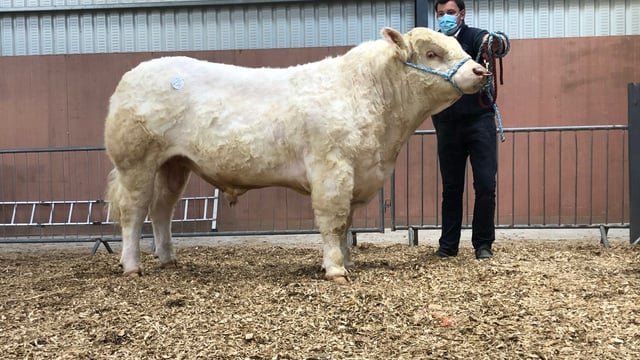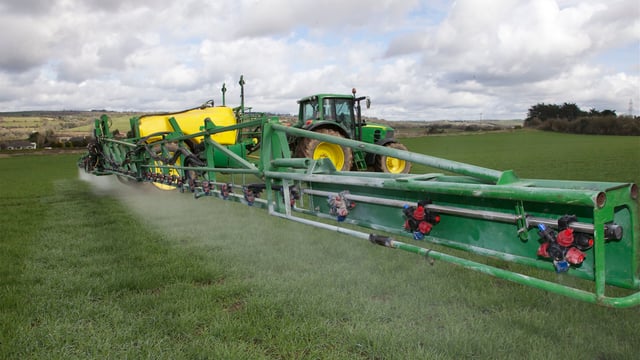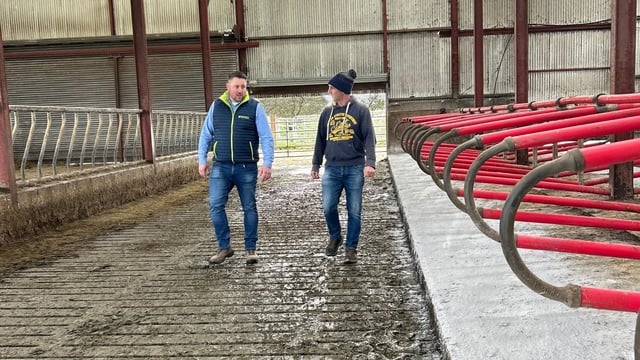'No one is talking to the consumer': NDC outlines Irish dairy dilemma
While the Irish dairy sector is good at communicating what it is doing at an environmental level, it is currently missing a beat in terms of communicating with the consumer, according to National Dairy Council (NDC) CEO Zoe Kavanagh.
Kavanagh was speaking to Agriland ahead of tomorrow's launch of the NDC's latest campaign "NDC: Fortifying Irish consumers' trust in dairy farming".
'Talking to itself'
When asked for her view as to whether the sector is doing enough on environmental issues, Kavanagh said:
"Our view would be the sector has done a really good job at talking to itself.
Kavanagh highlighted that water, soil and nutrient management are areas in which improvements can be achieved.
"I think the sector has come up with the right list of activities to be done," she continued.
Rate of adoption
"I think within the sector, the challenge now is the rate of adoption - because we’re always going to have those top 10% excellent farmers and farming families, perhaps 20%.
"So, I think rate of adoption is something; and I do think the co-ops are doing a lot along with Teagasc - and obviously now you’ve got the hand of regulation making people sit up and feel that they’ve got to accelerate in doing the right thing.
"However, the consumer has no idea what the sector is doing," she stressed.
Public charter
Highlighting that, prior to joining the agricultural sector, her background was in the soft drinks industry, Kavanagh drew a parallel with her former sector, noting:
"All the soft drinks companies undertook a charter of responsible advertising and sugar reduction.
"They all signed up at European level, a UNESDA [European Soft Drinks Industry Association] charter – they all signed the pledge, which was a suite of activities which would be done to take vending machines out of schools, promote the sugar-free variants, stop advertising the sugar-laden drinks within certain times of the day."
The NDC chief executive highlighted that this charter was signed up to – and was then communicated to the consumer "or those who influence the consumer".
"But the sector needs to collectively sign up to the pledge – and educate the consumer exactly around what’s being done and earn that social licence to produce," she warned.
NDC and 'proof points'
Continuing, Kavanagh highlighted that taking a message to the consumer can’t be successful without "proof points".
"One of the things we have been talking to the likes of Bord Bia about is identifying the proof points within the areas that the consumer cares about when it comes to the environment - and start actually communicating the path of progress within those proof points," she explained.
Noting that data is already present from the Sustainable Dairy Assurance Scheme (SDAS), which already audits dairy farmers, Kavanagh said:
However, a "collaborative aspect of the sector" is needed to achieve this, she said.
"The NDC is not in the business of running audits; that’s not what we do. But we should be collaborating and taking those proof points and those paths of improvement, and actually sharing them in a relevant way."
Consumer-friendly language
Kavanagh highlighted that communication is key in what is quite a complex area, explaining:
"If you start talking to the consumer around protected urea and nutrient management plans, that is not consumer-friendly language.
"You need to have proof points around it, like 'the water quality in these areas has improved from X to Y because the farmer has adopted a suite of practices' or 'plants will grow if the soil is at the right pH; we’ve actually now got X% of farmers measuring soil pH so they can be much more selective in their application of nutrient management'.
"These are my observations; I think the sector is talking to the sector and the government. No one is talking to the consumer – that’s where we sit.
NDC
On the NDC's own work, Kavanagh said: "We have a pedigree of doing really strong product work with the consumer.
"In order to give the farmers value for the levy they give to us, we need to deploy our comms expertise in the production system.
"That’s where we’ve got to and where we see the next three years of focus needed in Ireland," the CEO concluded.





